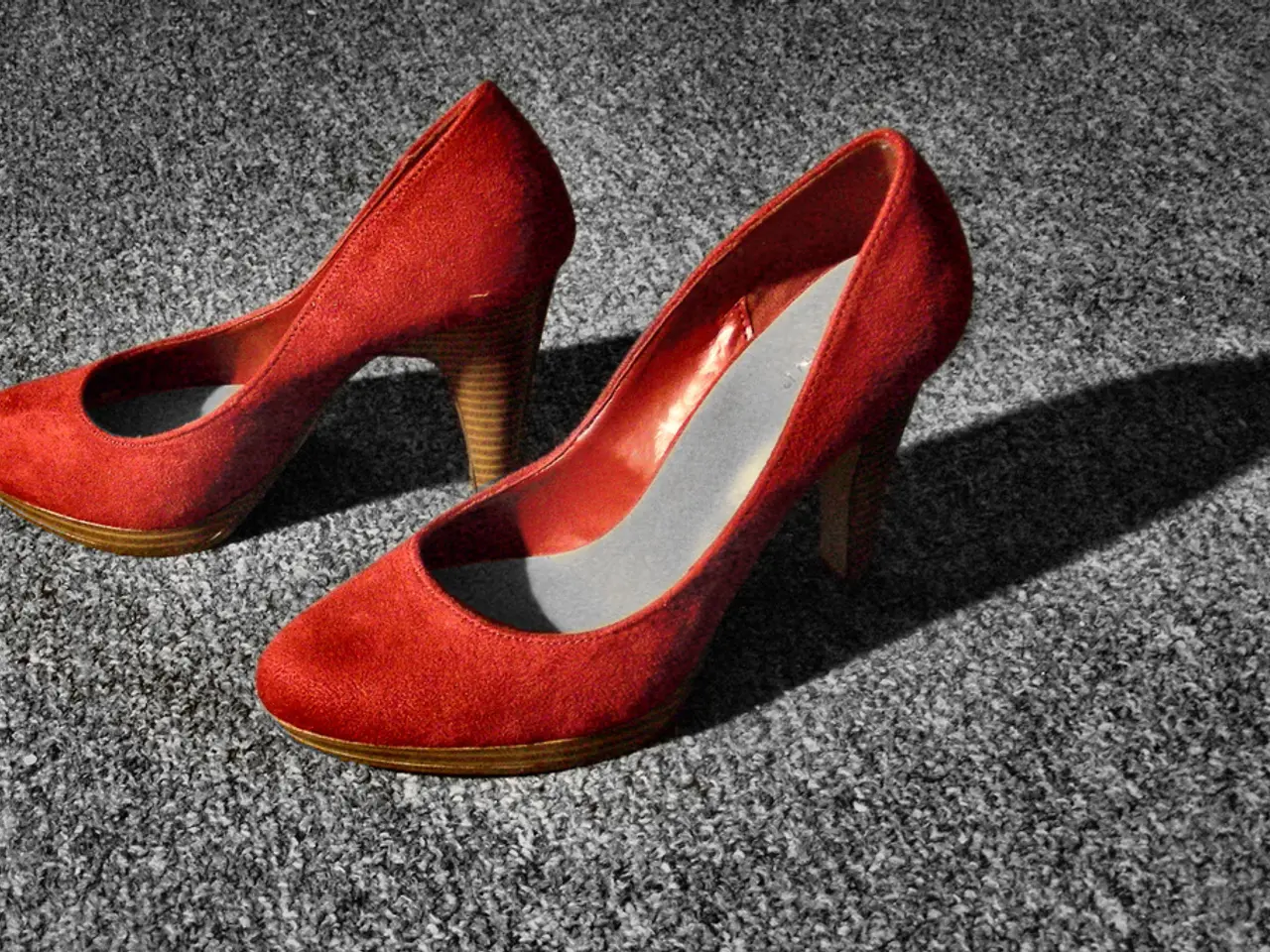Warts on the soles of the feet: Recognizing signs, origins, and remedies
Plantar warts are small, non-cancerous growths that appear on the soles of the feet due to a human papillomavirus (HPV) strain. These warts can be painful and may cause discomfort during walking or standing, especially for athletes such as dancers, gymnasts, and swimmers who often go barefoot in communal areas [1].
For those seeking home remedies, there are several options available. One popular method is duct tape occlusion, where a piece of duct tape is placed over the wart and replaced every few days. This process can help soften the wart and eventually remove it [1][2]. Another common remedy is the use of salicylic acid, which is available in various forms such as liquid, gel, or medicated pads. Salicylic acid helps break down the tough layers of the wart, making it easier to remove with the help of a pumice stone or exfoliating [1][3].
Other home remedies include the use of apple cider vinegar, castor oil, and banana peels. However, the effectiveness of these remedies varies, and it's essential to consult a medical professional before starting any treatment [2].
Professional treatments offer more direct and effective methods for removing plantar warts. Cryotherapy is a common method where a doctor uses liquid nitrogen or argon gas to freeze the wart, which eventually falls off. This method is highly effective but may require multiple sessions [1][4]. Immunotherapy involves using topical creams to stimulate the immune system to fight off the HPV virus causing the wart. Laser treatment destroys the wart using a laser, while electrocautery involves burning the wart with an electric current. In severe cases, surgical removal may be necessary [1].
It's important to note that people with certain health conditions such as diabetes, circulatory problems, cardiovascular conditions, or vascular disease should consult a doctor before treating plantar warts at home [1]. Regular follow-up with a healthcare provider is essential to monitor the effectiveness of any treatment and prevent recurrence.
In conclusion, while home remedies can be helpful, professional treatments are generally more effective and should be considered if home remedies are not successful. It's always best to consult a medical professional for advice tailored to individual circumstances.
References: [1] Mayo Clinic. (2021). Plantar warts. Retrieved from https://www.mayoclinic.org/diseases-conditions/plantar-warts/symptoms-causes/syc-20374277 [2] Healthline. (2021). Plantar warts: Causes, symptoms, and treatment. Retrieved from https://www.healthline.com/health/plantar-warts [3] WebMD. (2021). Plantar warts: Symptoms, Causes, and Treatments. Retrieved from https://www.webmd.com/skin-problems-and-treatments/plantar-warts/plantar-warts-overview [4] American Academy of Dermatology. (2021). Plantar warts. Retrieved from https://www.aad.org/public/diseases/a-z/plantar-warts-treatment
- For individuals prioritizing health-and-wellness, it's crucial to be aware that chronic-diseases like diabetes might complicate the treatment of plantar warts, necessitating professional advice.
- As one delves into the realm of skin-care, it's evident that plantar warts, though small and seemingly innocuous, can cause discomfort during fitness-and-exercise activities, especially for athletes.
- In the pursuit of health-and-wellness, understanding mental-health is equally important, as the stress and discomfort caused by conditions like plantar warts could potentially impact mental well-being.
- Adhering to a balanced nutrition plan is essential for overall health, and proper nutrition can aid in supporting the immune system to combat skin-related medical-conditions such as plantar warts.
- Advancements in science and medical-conditions research have led to various home remedies for plantar warts, such as duct tape occlusion and salicylic acid, offering alternatives to professional treatments for those seeking an at-home solution.






